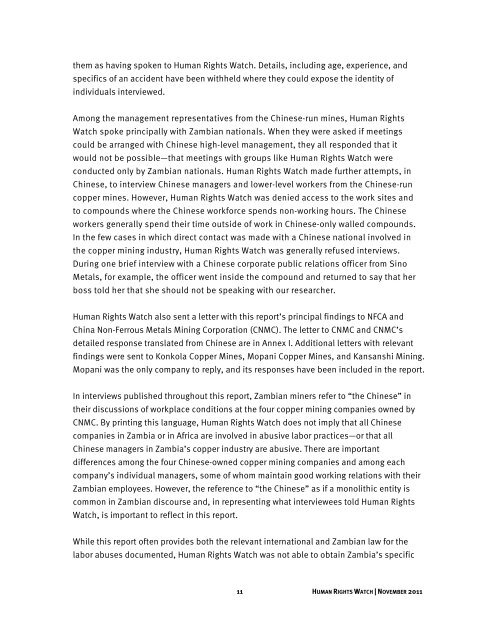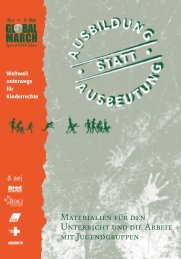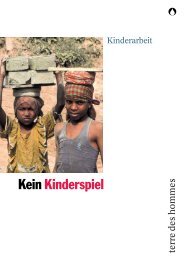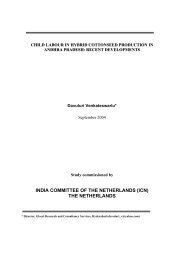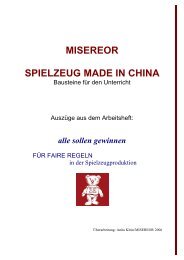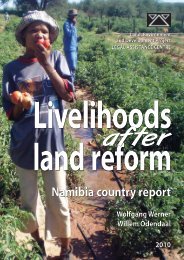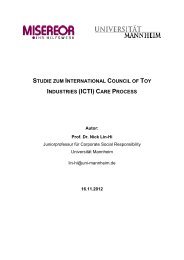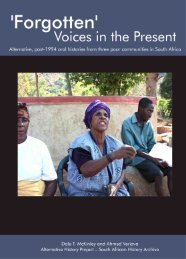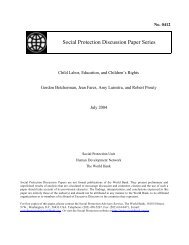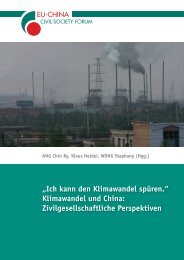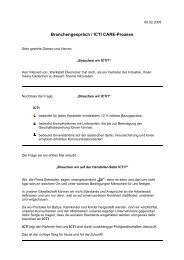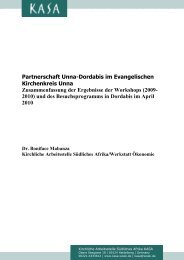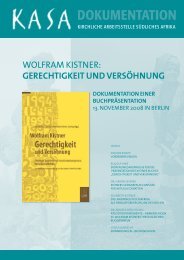“You'll Be Fired if You Refuse†- Human Rights Watch
“You'll Be Fired if You Refuse†- Human Rights Watch
“You'll Be Fired if You Refuse†- Human Rights Watch
Create successful ePaper yourself
Turn your PDF publications into a flip-book with our unique Google optimized e-Paper software.
them as having spoken to <strong>Human</strong> <strong>Rights</strong> <strong>Watch</strong>. Details, including age, experience, and<br />
spec<strong>if</strong>ics of an accident have been withheld where they could expose the identity of<br />
individuals interviewed.<br />
Among the management representatives from the Chinese-run mines, <strong>Human</strong> <strong>Rights</strong><br />
<strong>Watch</strong> spoke principally with Zambian nationals. When they were asked <strong>if</strong> meetings<br />
could be arranged with Chinese high-level management, they all responded that it<br />
would not be possible—that meetings with groups like <strong>Human</strong> <strong>Rights</strong> <strong>Watch</strong> were<br />
conducted only by Zambian nationals. <strong>Human</strong> <strong>Rights</strong> <strong>Watch</strong> made further attempts, in<br />
Chinese, to interview Chinese managers and lower-level workers from the Chinese-run<br />
copper mines. However, <strong>Human</strong> <strong>Rights</strong> <strong>Watch</strong> was denied access to the work sites and<br />
to compounds where the Chinese workforce spends non-working hours. The Chinese<br />
workers generally spend their time outside of work in Chinese-only walled compounds.<br />
In the few cases in which direct contact was made with a Chinese national involved in<br />
the copper mining industry, <strong>Human</strong> <strong>Rights</strong> <strong>Watch</strong> was generally refused interviews.<br />
During one brief interview with a Chinese corporate public relations officer from Sino<br />
Metals, for example, the officer went inside the compound and returned to say that her<br />
boss told her that she should not be speaking with our researcher.<br />
<strong>Human</strong> <strong>Rights</strong> <strong>Watch</strong> also sent a letter with this report’s principal findings to NFCA and<br />
China Non-Ferrous Metals Mining Corporation (CNMC). The letter to CNMC and CNMC’s<br />
detailed response translated from Chinese are in Annex I. Additional letters with relevant<br />
findings were sent to Konkola Copper Mines, Mopani Copper Mines, and Kansanshi Mining.<br />
Mopani was the only company to reply, and its responses have been included in the report.<br />
In interviews published throughout this report, Zambian miners refer to “the Chinese” in<br />
their discussions of workplace conditions at the four copper mining companies owned by<br />
CNMC. By printing this language, <strong>Human</strong> <strong>Rights</strong> <strong>Watch</strong> does not imply that all Chinese<br />
companies in Zambia or in Africa are involved in abusive labor practices—or that all<br />
Chinese managers in Zambia’s copper industry are abusive. There are important<br />
d<strong>if</strong>ferences among the four Chinese-owned copper mining companies and among each<br />
company’s individual managers, some of whom maintain good working relations with their<br />
Zambian employees. However, the reference to “the Chinese” as <strong>if</strong> a monolithic entity is<br />
common in Zambian discourse and, in representing what interviewees told <strong>Human</strong> <strong>Rights</strong><br />
<strong>Watch</strong>, is important to reflect in this report.<br />
While this report often provides both the relevant international and Zambian law for the<br />
labor abuses documented, <strong>Human</strong> <strong>Rights</strong> <strong>Watch</strong> was not able to obtain Zambia’s spec<strong>if</strong>ic<br />
11 HUMAN RIGHTS WATCH | NOVEMBER 2011


